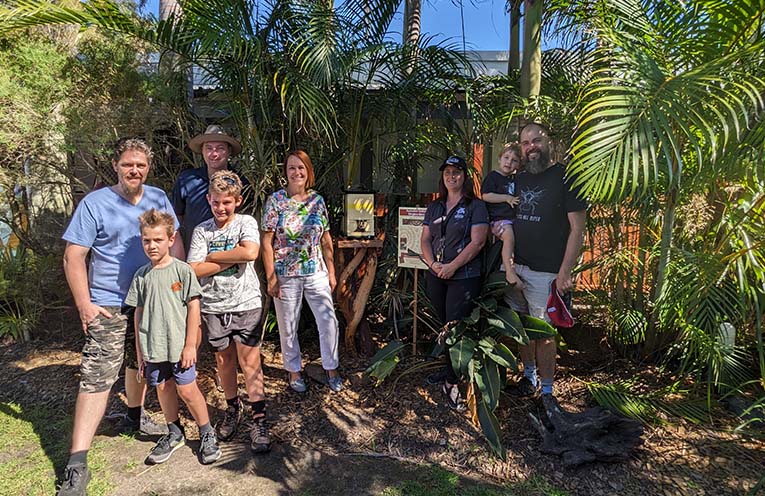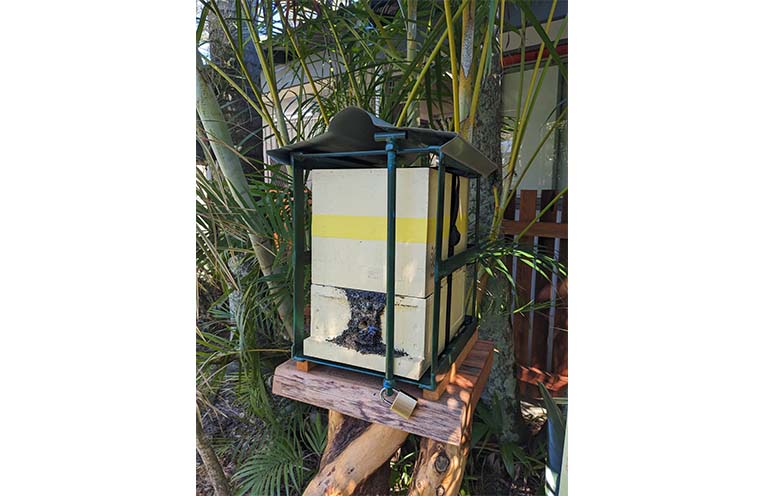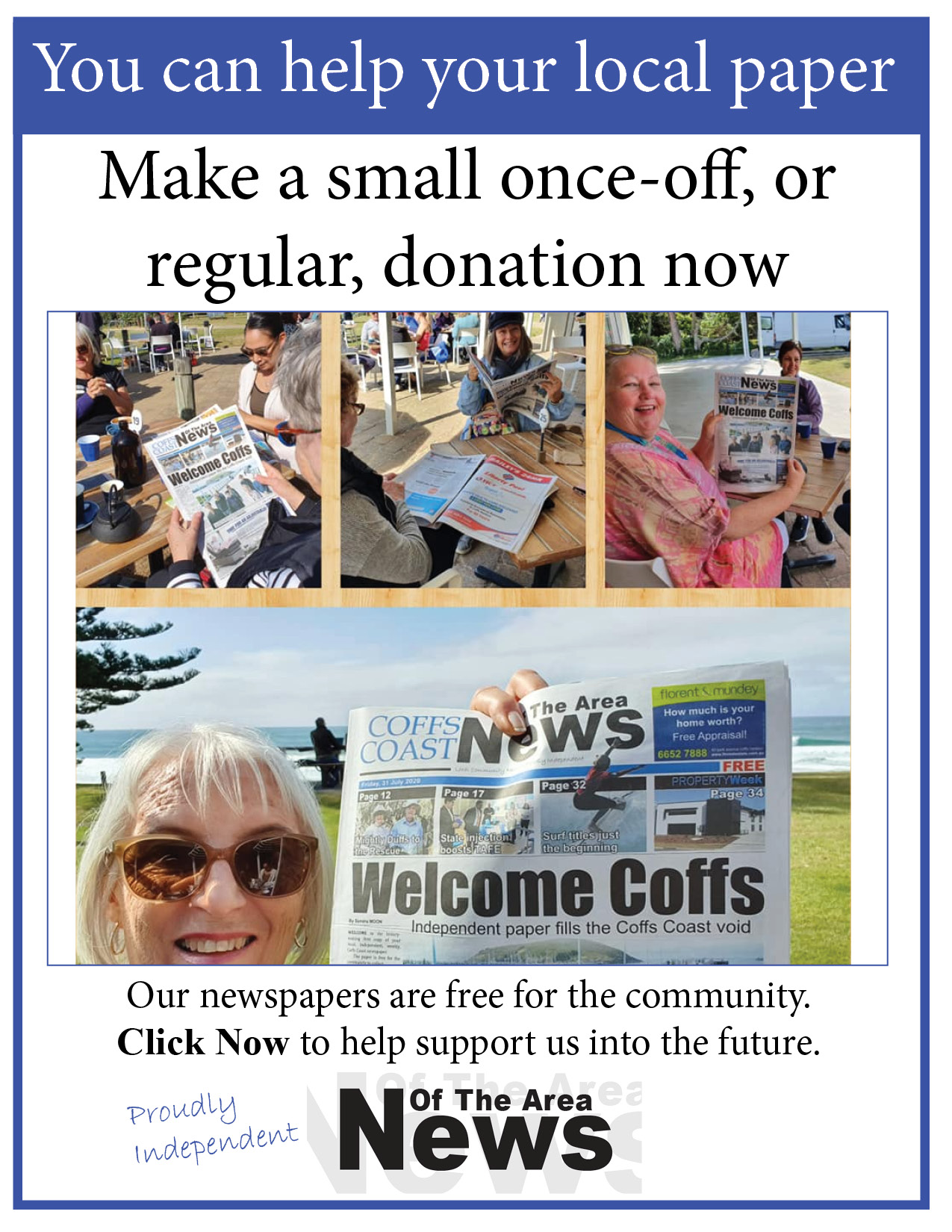
THE Coffs Harbour Branch of the Australian Native Bee Association (ANBA) has installed a native beehive at the Coffs Coast Wildlife Sanctuary (CCWS) as part of its Host a Hive program.
This is the second hive installed by the Branch, the first being located in the North Coast Regional Botanic Garden in Coffs Harbour.
 Advertise with News of The Area today.
Advertise with News of The Area today.It’s worth it for your business.
Message us.
Phone us – (02) 4981 8882.
Email us – media@newsofthearea.com.au
The hive is home to Tetragonula Carbonaria species.
“(This is) a social native stingless bee,” Elaine Bean, Chairperson of ANBA’s Coffs Harbour Branch, told News Of The Area.
The aim of the Host a Hive program is to increase awareness of these fascinating native pollinators in community and educational settings on the Mid North Coast.
The hive was placed into position by Elaine Bean and Tiga Cross, owner and Managing Director of Coffs Coast Wildlife Sanctuary, on Friday 29 December.
The Coffs Coast Wildlife Sanctuary is located at 65 Orlando Street, Coffs Harbour, near the Jetty.
The hive is safely housed in a security cage provided by local custom metal fabrication expert Jason Atkinson of Acko Kustoms.
The unique stand was handcrafted from a single log by Rob Reid from the maintenance team at the Sanctuary.
Positioned in the sustainability garden at the Sanctuary, visitors are provided with the opportunity to sit and enjoy these tiny insects.
“The hive is available to view by all guests visiting the Sanctuary, including our school and coach groups, reaching around 60,000-plus people per year,” Tiga told NOTA.
“We will be increasing our bee education in our ‘ed-venture’ programs and our day-to-day sustainability garden viewing.
“The display is not only providing a safe home for our 7000 new residents but also provides key education around the use of pesticides in our gardens, planting native plants with flowers to support wildlife and pollination, educating the community on honey production, and following sustainable practices,” she said.
Despite their small size, these little pollinators are essential for diversity and supporting the world’s ecosystem.
“The Coffs Harbour branch is thrilled to be associated with the CCWS,” said Elaine.
“ANBA, through our branch in Coffs Harbour, wants to increase community awareness of the existence and importance of over 2000 species of Australian native bees.
“Native bees vary in shape, size, colour and behaviour.
“The vast majority of native bees are solitary, with only eleven species that live in a large group with a queen.
“Native bees are an important part of our natural environment, and have increasingly significant value for our agricultural industry.
“They have many threats, some of which are man-made, including land clearing and insecticides.
“By educating the community we hope to change human behaviours and protect these native pollinators,” she said.
The hive will be monitored and maintained by the ANBA.
The Australian Native Bee Association is a national support network and mentor for interested beekeepers of native stingless bees.
Networking opportunities and connection with others are available to share experiences and information on native bee diversity, habitats, techniques and ideas.
The Coffs Harbour branch meets once a month from spring to autumn.
If you would like to know more about the Association please visit www.anba.org.au.
By Andrea FERRARI


